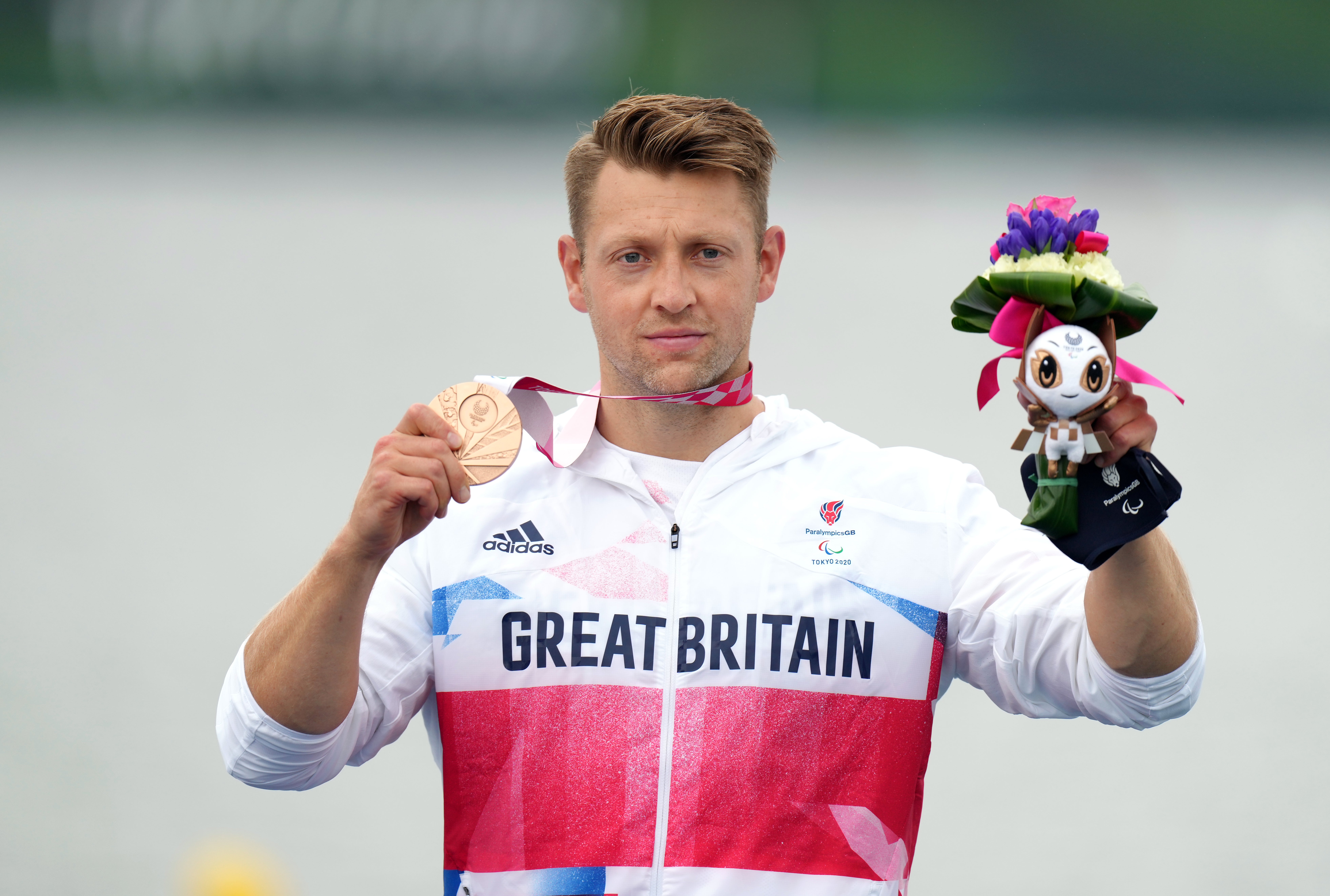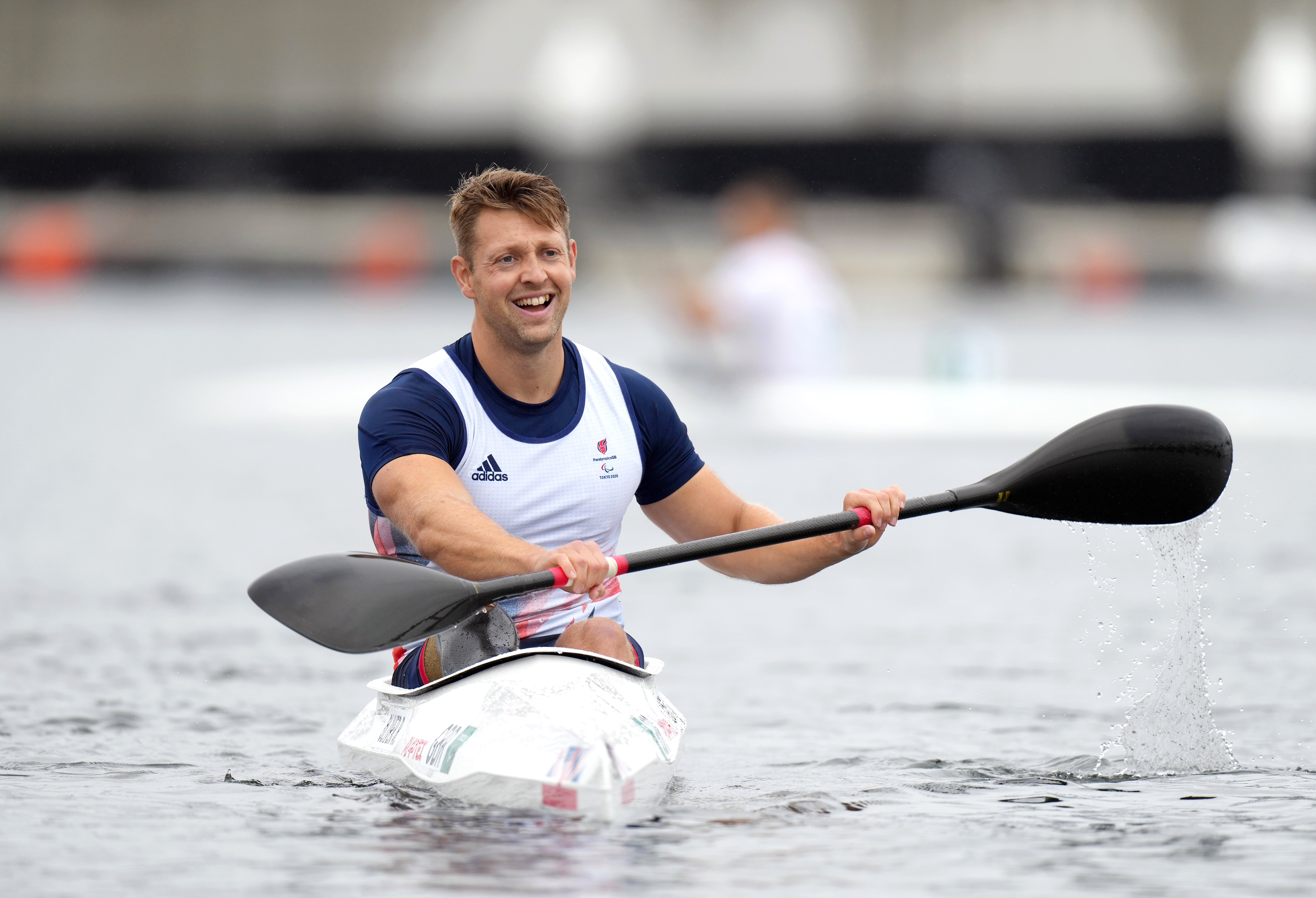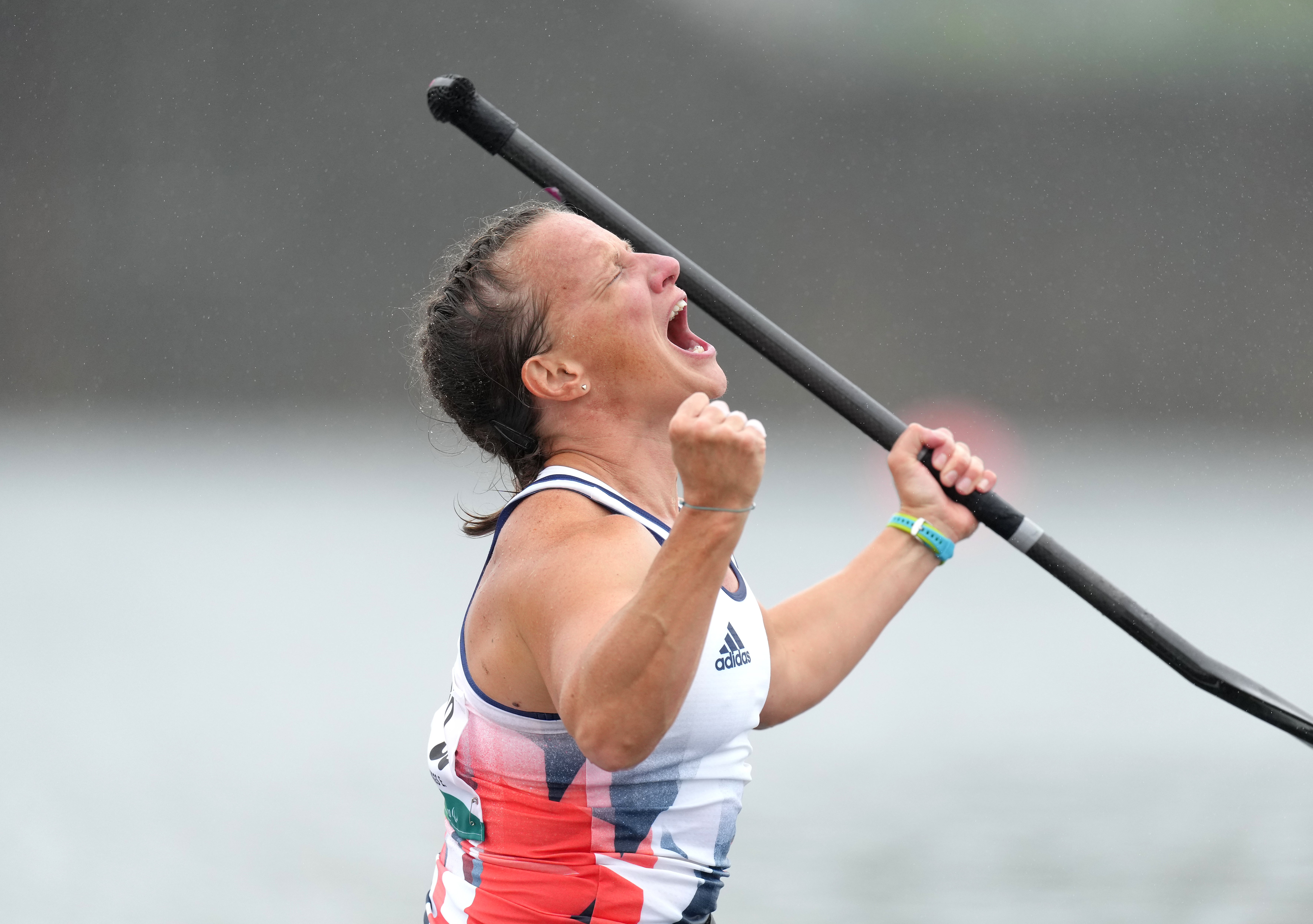Robert Oliver cried tears of joy after fairy-tale ending to Paralympic career
The 33-year-old snapped his tibia and fibula playing Sunday league football

Canoeist Robert Oliver cried tears of joy following a fairy-tale ending to his Paralympic career – 13 years on from medical negligence leading to the amputation of his right leg after an innocuous tackle in amateur football.
Birmingham-born Oliver was the only British paddler not to win a medal at Rio 2016 and a major doubt for Tokyo having contracted coronavirus just five weeks before the Games.
Redemption for the 33-year-old, who is now poised to return to his job as an aerospace engineer for the sake of his young family, came in the form of a bronze medal in the KL3 200m kayak final, further lighting up a memorable morning for Great Britain at a grey and rainy Sea Forest Waterway.
Emma Wiggs had earlier etched her name into the history books with gold in the Paralympics’ inaugural VL2 va’a event, with GB team-mate Jeanette Chippington taking bronze.
Oliver’s journey into disability sport began in February 2008 and will shock the thousands who step on to Sunday league football pitches every week.

After snapping his tibia and fibula in the process of scoring the “best goal” of his modest career for local side Solihull Red Diamonds, hospital staff initially failed to diagnose compartment syndrome.
He was eventually rushed in for surgery on a condition which blocks blood flow and underwent a total of 17 operations but the costly original mistake later resulted in him losing his leg below the knee and subsequently receiving a six-figure compensation sum.
“Thirteen years later I can’t believe it, I never thought I would do this – I never thought I would be in a boat, let alone win a Paralympic medal, it’s crazy,” said the father of two.
“A series of unfortunate events led to it but, from that moment, I’ve just gone from strength to strength.
“The first few months in hospital were tough. I was talking to the wall I’d been there so long. I didn’t want to admit I’d never play football again.”
Oliver also suffered an abdominal strain ahead of Friday’s race, a consequence of his operations when some of his stomach muscles were removed to help reconstruct his leg.
I went to stand up and my leg turned around the wrong way. I didn't expect nine months later I wouldn't have a leg any more.
“I came up for a corner, which I had no right to do as a right-back, the ball popped out to the edge of the box and I volleyed it, it was the best goal I ever scored in my career,” he said, recalling his initial injury.
“As I contacted the ball, I was tackled and his studs went straight through my tibia and fibula, it was a clean break.
“I went to stand up and my leg turned around the wrong way. I didn’t expect nine months later I wouldn’t have a leg any more.”
The Manchester United fan, who also has a soft spot for Aston Villa, regained his love of sport in the kayak but struggled to handle the pressure in Brazil five years ago and “headbutted a wall” ahead of competing.

Having not reached the podium, Oliver then faced the ignominy of being the only member of the team without his image prominently displayed at their Nottingham training centre and excluded from events solely for medallists.
But the arrival of four-year-old son Elliot and two-year-old daughter Maisey, plus support from wife Zoe – who incidentally works as an NHS nurse – have changed his mentality for the better.
“Over and over again, I was known as the only guy who didn’t win a medal,” he said.
“You’re the only person that doesn’t have a billboard. Every time it would be: ‘We’re going here…but sorry, it’s only the medallists’. That first year was really tough but I stuck with it.
“Five years ago before my final I headbutted a wall because mentally I wasn’t tough enough, I couldn’t handle the pressure of it.
“This time around I’ve got two young kids, it’s grounded me a lot, this is just me enjoying my sport.”
Oliver, who finished in 41.268 behind Ukrainian gold medallist Serhii Yemelianov and Russian Leonid Krylov, received an emotional hug from team-mate Wiggs just before his post-race interview.
Competitions in va’a boats were added to the schedule for this Games, joining kayak events, which debuted at Rio 2016, with paracanoe races consisting of 200m sprints in a straight line.

Former sitting volleyball player Wiggs, a qualified PE teacher, powered to victory in her race in a time of 57.028 seconds.
The 41-year-old lost the use of her legs after contracting a mystery virus while sheep-shearing in the Blue Mountains in Australia on a gap year aged 18.
“It was so important for the continued progression of Paralympic sport that we were here,” said Wiggs, who will defend her KL2 title on Saturday.
“It’s just amazing to make history and to do it on a podium with Jeanette again is more than we could have dreamt of.”
Fellow Briton Chippington picked up GB’s 100th medal in Japan in a time of 1:02.149 – the 14th Paralympics medal of a glittering career, which began as a swimmer 33 years ago.
She had been backed by her parents at each of her previous six Games.
Her father David died last year after contracting Covid-19, while her 83-year-old mother Jean is now in a nursing home with vascular dementia.
“I do think he’d be so proud of me and my coach always says, ‘when you’re in your race, just imagine your friends and your family are behind you and pushing you that last bit of the race’,” said the 51-year-old.
“I literally was thinking that and thought my dad, he’s there, just give me an extra little push. I will be going back home and will show my mum the medal.”